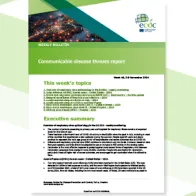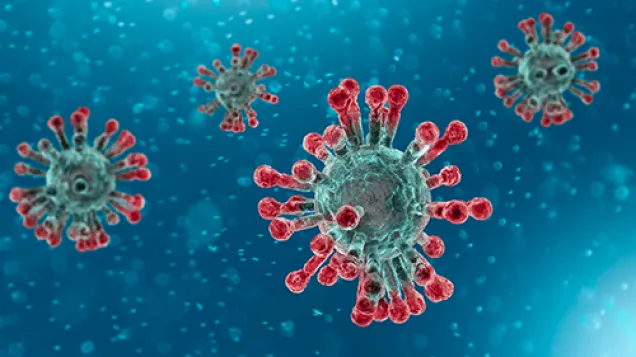Are European laboratories ready to detect COVID-19?
In January 2020, a survey among laboratories to assess the capacity and quality for SARS-CoV-2 (previously 2019-nCoV) diagnostics as well as implementation barriers was conducted. The data provided by 47 laboratories in 30 EU/EEA countries were taken into account in a study released by Eurosurveillance.
The laboratories were asked to indicate their weekly capacity for molecular testing for SARS-CoV-2. Of the 47 participating laboratories, 38 indicated a capacity of minimum 8 275 tests per week.
At the time of the survey, an additional eight laboratories were in the process of implementing molecular diagnostics and these laboratories would, all combined, add a minimum capacity of 875 tests per week once this process would be complete.
Furthermore, the survey indicated a great willingness of laboratories to provide international diagnostic support and to share sequences to contribute to the monitoring of virus evolution and trace transmission chains.
The main challenges for test implementation were an initial lack of positive control, lack of personnel/time and a lack of primers and/or probes.
Read the full assessment

A first assessment looking at the preparedness of EU/EEA laboratories to detect severe acute respiratory syndrome coronavirus 2 (SARS-CoV-2) demonstrates a fast implementation of molecular diagnostics by the European specialised laboratory networks. It also shows a good geographical coverage for testing.
Latest updates
Further reading

This issue of the ECDC Communicable Disease Threats Report (CDTR) covers the period 21 - 27 February 2026 and includes updates on respiratory virus epidemiology in the EU/EEA, mass gathering monitoring, chikungunya, cholera, and swine flu.
Communicable disease threats report, 21 - 27 February 2026, week 9
English (1.98 MB - PDF)
This issue of the ECDC Communicable Disease Threats Report (CDTR) covers the period 7 - 13 February 2026 and includes updates on respiratory virus epidemiology in the EU/EEA, mass gathering monitoring, avian influenza, and mpox.
Communicable disease threats report, 14 - 20 February 2026, week 8.pdf
English (2.04 MB - PDF)
This issue of the ECDC Communicable Disease Threats Report (CDTR) covers the period 7 - 13 February 2026 and includes updates on respiratory virus epidemiology in the EU/EEA, mass gathering monitoring, avian influenza, chikungunya, dengue, Nipah virus disease, and measles.
Communicable disease threats report, 7 - 13 February 2026, week 7
English (3.6 MB - PDF)
This issue of the ECDC Communicable Disease Threats Report (CDTR) covers the period 31 January - 6 February 2026 and includes updates on respiratory virus epidemiology in the EU/EEA, SARS-CoV-2 variant classification, Bacillus cereus toxin in infant formula, mass gathering monitoring, mpox, nipah virus, and Middle East respiratory virus syndrome.
Communicable disease threats report, 31 January - 6 February 2026, week 6
English (6.02 MB - PDF)
This issue of the ECDC Communicable Disease Threats Report (CDTR) covers the period 24-30 January 2026 and includes updates on respiratory virus epidemiology in the EU/EEA, Marburg virus disease, cholera, avian influenza, bacillus in infant formula, and nipah virus disease.
Communicable disease threats report, 24-30 January 2026, week 5
English (2.71 MB - PDF)Share this page

